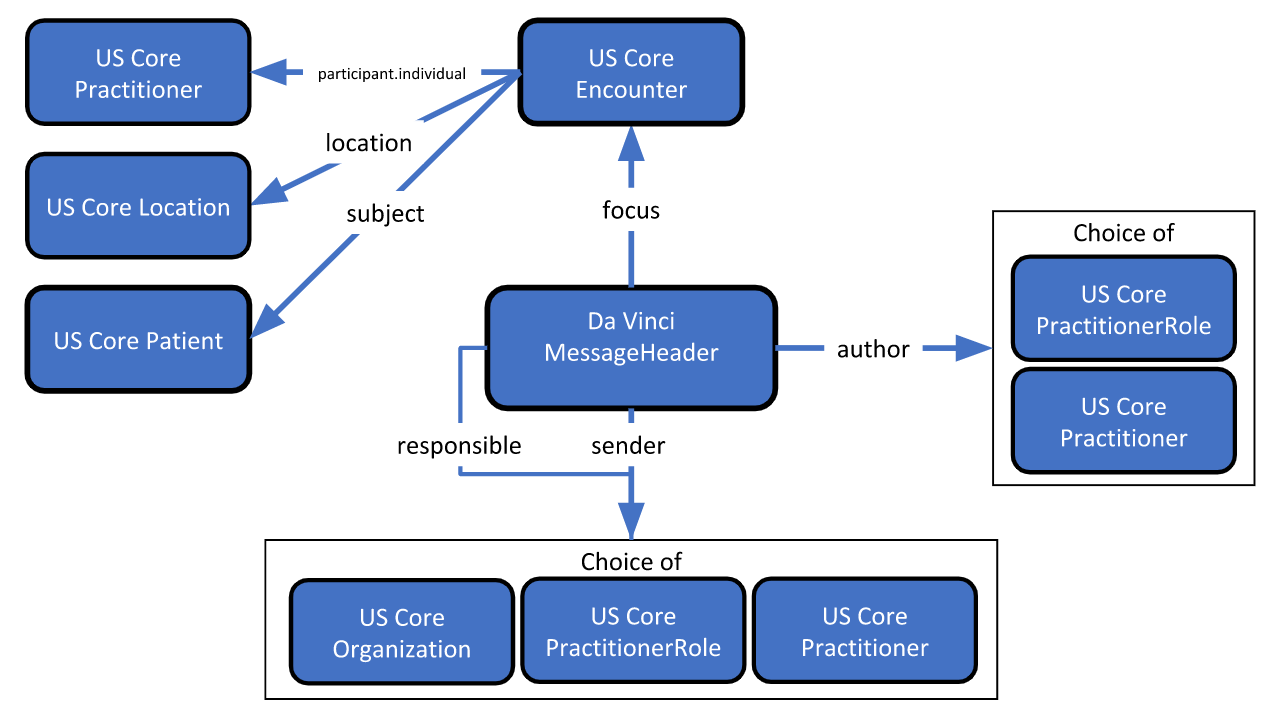Receiving ADT Notifications
ADT notifications can be received by use of Da Vinci Unsolicited Notifications. This can be set up by CareEvolution as a push to a specified FHIR endpoint.
Contents
Types of Messages Supported
CareEvolution currently supports 6 event types. They are:
| Event Type | Event Code | Description |
|---|---|---|
| Admit | notification-admit |
Communicates the patient is undergoing the admission process, assigning the patient to a bed. |
| Discharge | notification-discharge |
Communicates the patient is no longer in the facility. |
| OutpatientVisit | notification-outpatient-visit |
Communicates the patient is being seen for a non-admission episode of care. |
| Transfer | notification-transfer |
Communicates a change in the assigned physical location of the patient. |
| CareTeamChange | notification-care-team-change |
Communicates a change in people, teams, or organizations associated with the coordination and delivery of care of the patient. |
FHIR Notification Payload
The FHIR notification payload is a Bundle resource which contains the following resources:
| Resource | Cardinality |
| MessageHeader | 1..1 |
| Encounter | 1..1 |
| Patient | 1..1 |
| Location | 0..N |
| Practitioner | 0..N |
| Condition | 0..N |
Message Header Elements
See FHIR documentation for complete listing. The key elements in the HIEBus implementation are:
| Name | Cardinality | Type | Description |
|---|---|---|---|
eventCoding |
1..1 | Coding | Event type and description of the message. |
sender |
1..1 | string | Display name of the sending organization. |
source |
1..1 | Information about the source including name, software, version, contact info, and endpoint. | |
focus |
1..1 | Reference(Encounter) |
Reference to the Encounter which prompted the notification; the full resource is also included in the Bundle. |
Note that cardinality above is specifically for the HIEBus implementation.
For example, a MessageHeader for notification-admit:
"resource": {
"resourceType": "MessageHeader",
"eventCoding": {
"system": "http://hl7.org/fhir/us/davinci-alerts/CodeSystem/notification-event",
"code": "notification-admit",
"display": "Notification Admit"
},
"sender": { "display": "Anthem" },
"source": {
"name": "YourHIEBus",
"software": "HIEBus",
"version": "28.20.0.0",
"contact": {
"system": "email",
"value": "info@example.com",
"use": "work"
},
"endpoint": "https://example.com"
},
"focus": [ { "reference": "Encounter/1" } ]
}ADT Notification Profiles
ADT notifications include resources that conform to the following profiles:
- US Core Encounter profile
- US Core Location profile
- US Core Practitioner profile
- US Core Patient profile
- Coverage profile
The following diagram represents the relationships between supported profiles:
Pre-Requisites and Authentication
In order for CareEvolution to configure an ADT push notification, you will need a FHIR server/endpoint with the following capabilities:
- Perform POST operation.
- Receive the relevant FHIR payloads (see above Profiles).
- Authenticate via SMART on FHIR.
HIEBus supports the SMART backend authorization protocol. The HIEBus FHIR service will provide a signed JWT and get back an access token. It will then use that that token in all subsequent POSTs. During setup and configuration of authentication, CE will provide a signature public key and the corresponding JWKS that will be at https://[YOUR_FHIR_ENDPOINT]/identityserver/.well-known/jwks. Notification recipients will need to provide the following information:
- Token Endpoint (aud)
- Client ID (iss)
- Scopes
- Signing Algorithm - RS256 or RS384
- Basic Authentication username/password (optional) for the token endpoint
For more information about the SMART backend authorization protocol, see the FHIR Documentation.
